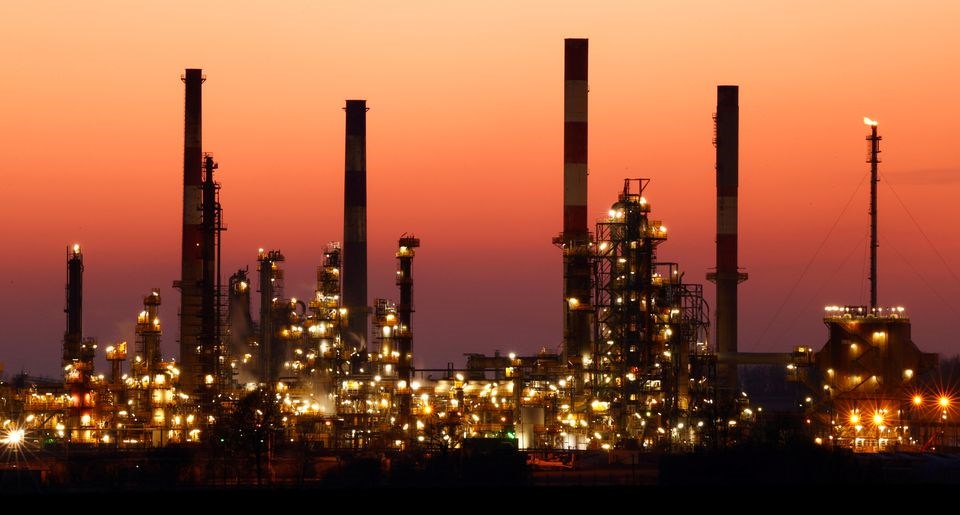Oil prices up 2% as UAE, Saudi Arabia approach max-out on oil output
West Texas Intermediate settled up $2.19, whereas Brent crude settled up $2.89.
-

The Total Grandpuits oil refinery seen just after sunset, southeast of Paris, France, March 1, 2021. (Reuters)
Oil prices rose 2% on Tuesday, coming amid the third day of talks that the UAE was maxing out on its oil production. This defies beliefs that the UAE has adequate resource capacity to raise the output in an emergency event.
West Texas Intermediate, the benchmark for US crude, settled up $2.19 - or 2%. at $111.76 per barrel.
Brent crude, the international benchmark for oil, settled up $2.89, or 2.5% at $117.98.
While WTI has rebounded around 7%, Brent gained 3% since the last negative settlement on Thursday. Before that, the two benchmarks lost 14% in an almost two-week long slump, which was crude's worst sell-off in two months.
What triggered the sell-off in the past two weeks was talks of undersupply of oil in addition to whispers of recession.
On Tuesday, China's zero-COVID-19 policy also added to the bullish trend in the oil price. Beijing's tough stance on the pandemic has stopped, according to some analysts, crude prices from reaching their true bullish potential this year.
This week, OPEC+'s alliance of oil producers, together, were producing around 2.7 million barrels a day - which is a number less than prescribed by the group.
At the current pace of OPEC+ production, "even sanctions being lifted on Iran and Venezuela can't do much against that backdrop," Craig Erlam, an analyst at online trading platform OANDA, said.
Biden has been considering lifting the sanctions on Venezuela and Iran to increase the world's supply of oil.
Since Friday, the trend was positive with an acceleration as French President Emmanuel Macron detailed to US President Joe Biden his phone call with UAE counterpart Mohammed bin Zayed Al Nahyan, who told him that the UAE cannot produce more oil than what they were already producing.
Read next: Biden to meet MBS in Saudi Arabia mid-July
View this post on Instagram
Macron also noted that bin Zayed told him Saudi Arabia can increase a little bit, about 150,000 barrels a day or a little more," the French president said, adding: "They don’t have huge capacities".
Saudi Arabia currently produces 10.5 million BPD and has a nameplate capacity of 12.0 million-12.5 million BPD, allowing it to increase output by 2 million.
The UAE produces approximately 3 million BPD, has a capacity of 3.4 million, and is working to increase it to 4 million BPD.

 3 Min Read
3 Min Read








